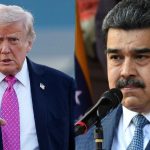As Europe rallies to support Ukraine’s defence and fortify its own security, three other post-Soviet states—Armenia, Georgia, and Moldova—remain dangerously exposed to Russian coercion. Each has expressed a desire to move closer to the West: Moldova and Georgia are official EU candidates, and all three participate in the European Union’s Eastern Partnership. Yet despite these aspirations, their chances of joining the European Union in the short term are slim. In this “waiting room” posture, their situation is precarious: it is precisely their orientation towards Europe and NATO that increases their vulnerability to Russian pressure, subversion, and, in some cases, military aggression.
While a full-scale invasion like that in Ukraine may not be imminent, Russian efforts to destabilise these states are already underway. In Georgia, once a regional reform leader, a pro-Russian slide has accelerated under an increasingly authoritarian government, despite overwhelming public support for EU membership. In Moldova, fragile democratic institutions and the unresolved Transnistria conflict leave the country exposed to disinformation and electoral interference. In Armenia, the aftermath of the 2023 Nagorno-Karabakh crisis has created fertile ground for pro-Russian political actors, who seek to capitalise on insecurity and thwart the country’s Western shift.
This interference raises a significant challenge for European decisionmakers. If they are serious about preventing further Russian strategic gains across the region, new measures must be found to help these countries overcome pro-Russian disinformation campaigns and resist populist political forces that would drag them back into Moscow’s orbit. Short of formal accession to the European Union, there are several material ways to support those in the waiting room.
While a full-scale invasion like that in Ukraine may not be imminent, Russian efforts to destabilise Armenia, Georgia, and Moldova are already underway.
Russia has threatened Moldova more directly than any other country but Ukraine since 2022. In 2023, President Maia Sandu said she had received information from the Ukrainian security services detailing a plot to topple the country’s leadership, prevent it from joining the European Union, and to use the country in the war against Ukraine. In the period prior to last year’s presidential election, Russia ramped up its information manipulation and interference campaign. A recent report (PDF) by Moldova’s Security and Intelligence Service states that Russia seeks to destabilize the country and undermine democracy and European integration. Furthermore, as Moldovan Deputy Prime Minister Mihail Popșoi recently stated, parliamentary elections this year will be fraught with risk because, in addition to bribing voters, public debate is distorted through disinformation propagated by fake online media accounts linked to Russia. Indeed, the opposition is actively twisting the truth by questioning the integrity of the recent Romanian presidential election in the Russian press and claiming that the West will seek to do the same in Moldova’s forthcoming parliamentary elections in September.
Russia also seeks to exacerbate tensions in separatist Transnistria, which relies economically on Russia and is a haven for organised crime. Moscow recently attempted to precipitate an energy crisis in the enclave and blame it on the Moldovan government in Chișinău.
In Georgia, the vulnerability of the waiting room has been ruthlessly exploited by domestic anti-Western, anti-liberal forces, always to the Kremlin’s benefit. The country has been subjected to all-out oligarchic state capture and is now run by a Russian-style authoritarian government that has abandoned EU integration. This is despite the fact the government party campaigned in a 2024 election on a platform of “to Europe with Dignity,” and around three quarters of Georgians want to join the bloc. In Tbilisi pro-Western political parties are not only out of government, but could yet be banned outright by an ever more repressive regime. Independent civil society, which has flourished for thirty years, is being crushed by repressive legislation.
In Armenia, longstanding security ties to Moscow have been upended by the events of the 2020 war against Azerbaijan in Nagorno Karabakh. The war ended with the deployment of Russian peacekeepers to Karabakh, ostensibly to protect the ethnic-Armenian population, but they did nothing to prevent Azerbaijan conquering the whole of the disputed territory in 2023, which resulted in the forced displacement of more than 100,000 civilians—a displacement that has been described as ethnic cleansing by the Council on Foreign Relations, Freedom House, and the European Parliament.
As a result of these events, Russia’s reputation in Armenia is in tatters, with more people now seeing the country as a threat (PDF) than as a partner, a seismic shift from five years ago. The government also sees Russia as an unreliable partner and, although the country still remains a member of the Eurasian Economic Union on paper, the Armenian parliament voted to begin EU accession talks earlier this year. Indeed, some 60 percent of Armenians (PDF) would vote to join the European Union tomorrow. This was accompanied in 2024 by new EU grants to support economic resilience. The European Union also maintains an unarmed monitoring mission on Armenia’s border with Azerbaijan. This mission, to the ire of Baku, regularly reports on Azerbaijani firing at Armenian civilian infrastructure.
Nevertheless, Armenia’s Western trajectory is extremely perilous. Yerevan remains in Russia’s orbit even as political relations have declined. Since its borders with both Turkey and Azerbaijan are firmly closed, its trade links with Russia remain extremely important. And although Armenia has removed Russian border guards from Yerevan’s airport, they remain on its border with Iran, in addition to a major Russian base in Gyumri. With Armenia facing the existential threat of a further invasion by Azerbaijan, a threat that is relentlessly talked up by the Kremlin, the great risk is that Moscow will acquiesce to an Azerbaijani assault as a means to install a pro-Russian figure in Yerevan.
Despite these concerning trajectories, there remain several measures European allies could take to counter Russian influence and expansion in the region. One is the revitalisation of strategic communications campaigns which promote liberal democracy and the rule of law. Much is written about Russia’s disinformation playbook, which is built upon false appeals (PDF) to patriotism, conspiracy theories about questions of identity, and veiled threats of aggression, but the information war is eminently winnable. In the past, Europe has relied heavily on U.S.-funded organisations, including USAID, National Endowment for Democracy (NED), and Radio Free Europe/Radio Liberty (RFE/RL), to support civil society and the independent media, and each country is more open to the conspiracy theories and disinformation peddled by Russia without them. With USAID programs suspended across the region, and the future of NED and RFE/RL in doubt, European counterparts will have to think proactively about how to fill the gap in crucial areas like media development and strategic communications.
Despite concerning trajectories, there remain several measures European allies could take to counter Russian influence and expansion in the region.
Countries in the waiting room of the West also need further political and economic support—support that recognises the vulnerability they face in seeking Western integration and helps to reduce remaining dependencies and associations with Russia. In Armenia, the European Union could bolster the country’s western pivot by offering candidacy status, continuing its border monitoring mission, and taking a firmer line on Azerbaijan’s military provocations and bellicose rhetoric. European countries including the United Kingdom could increase their support for the government’s strategic communications efforts to counter disinformation and to embed the country’s reorientation.
In Moldova, the European Union has increased its support since 2022, including through the Moldova Support Platform. This has funded efforts to improve Moldova’s energy security and reduce the cost of electricity. The United Kingdom also offers Moldova support on a range of issues through its annual Strategic Dialogue (PDF), including efforts to counter hybrid threats. However, the scale of Western support—including financial resources and commitments—should be elevated commensurate with the significance of the threat from Russia (PDF); the stalemate in Ukraine may provoke the Kremlin to look for opportunistic gains elsewhere. Russia has little to offer Moldovans and the West should focus on quickening and deepening the material aspects of integration and partnership, increasing its relative appeal still further.
Firmer levers including sanctions could be applied to counter democratic backsliding in Georgia, and the country’s candidate status could be formally suspended if the government continues to take the country towards a Russian model. With EU-wide sanctions complicated due to de facto vetoes from Hungary and Slovakia, efforts to hold to account those responsible for corruption and human rights abuses will have to fall to individual states. Countries such as the United Kingdom can play a significant role here: Georgia has crucial business ties in banking, hydrocarbons, and the media, and a more robust stance regarding sanctions could significantly increase the costs for those seeking to turn Georgia away from its Western course.
History has also shown that any compromise, appeasement, or apathy in the response to Vladimir Putin’s strategic ambitions on the continent only encourages further aggression. Using its presidency of the Council of the European Union, Poland has committed to convincing members that “Europe can continue to be the safest, most stable place on Earth.” It follows that the bloc and its partners have a chance, once again, to meet the aspirations of those former Soviet countries which also seek that future.
John Kennedy and William Dunbar
source: RAND




